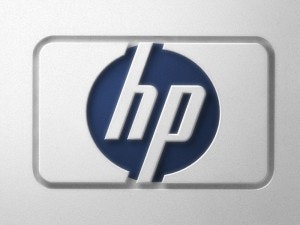Investors in companies tied to the health of the personal computer have heard plenty of opinions from financial pundits about whether the PC can survive the trend toward tablets and other mobile devices. In truth, even self-professed technology experts don’t know exactly where the PC is headed. But a multitude of data leads many observers to believe that the personal computer is on its way out.
A recent report from market research firms IDC and Gartner revealed what many industry observers had long suspected: Sales of personal computers are going in the wrong direction. Over the first quarter of the year, worldwide PC shipments fell 14% year over year, representing the biggest quarterly decline ever. The forecast had called for a decline of 7%, meaning the results were twice as bad as expected.
Not surprisingly, personal-computer-dependent stocks declined significantly on the day of the announcement. Both Intel Corporation (NASDAQ:INTC) and Microsoft Corporation (NASDAQ:MSFT) fell 3% on the day, reversing a pattern of gains enjoyed by both stocks in recent trading sessions. Hewlett-Packard Company 
You can’t say you weren’t warned
Investors can’t claim to be surprised by all of this. These companies’ own operating results have provided ample evidence of the PC’s fall from grace.
Microsoft Corporation (NASDAQ:MSFT)’s most recent fiscal year revealed a company treading water. While its revenue increased 5% during 2012, Microsoft Corporation (NASDAQ:MSFT)’s operating income dropped 20%, owing to a massive $6 billion goodwill impairment charge for the company’s underperforming Online Services division.
Intel’s fourth-quarter financial report likely gave investors nightmares. The tech giant reported that quarterly earnings dropped 27% year over year. Revenue fell 3% in the same period. For the full year, revenue and earnings per share dropped 1.2% and 11%, respectively.
HP’s decline has been well-publicized. After trading north of $50 in early 2010, Hewlett-Packard Company (NYSE:HPQ) began a nearly unimpeded decline to its current level near $21 per share. The company reported a massive loss of $6.41 per share in 2012, due to higher operating expenses and a huge $18 billion impairment charge.
Its first-quarter 2013 results shouldn’t give investors any more of a reason to cheer. Five of its six segments saw revenue declines versus the first quarter last year; only its financial services division grew.
Cheap stocks can always get cheaper
Value investors are likely circling these stocks because of their cheap valuations and hefty dividend yields. While both Intel and Microsoft Corporation (NASDAQ:MSFT) do appear to be cheap, they’ll get even cheaper if their underlying performance keeps falling. For now, investors are getting stocks trading for roughly 10 times their adjusted earnings per share, and dividend yields well above 3%.
For its part, HP remains a strong cash flow generator, producing more than $6.8 billion in free cash flow in fiscal 2012. If you’re willing to exclude the company’s massive impairment charge, Hewlett-Packard Company (NYSE:HPQ) would have earned diluted earnings per share of $4.05 during the fiscal year, meaning the stock trades for only five times its trailing diluted EPS.
Furthermore, Hewlett-Packard Company (NYSE:HPQ) uses part of its cash flow to pay a dividend, which it raised 10% in March. The stock now yields close to 3%.
Only time will tell whether the personal computer is truly dead. As of now, however, investors shouldn’t delude themselves into ignoring PCs’ declining sales. On the bright side, these three stocks provide compelling dividend yields in conjunction with what appear to be very attractive valuations. However, these companies need to demonstrate that they’re either reversing the trend in PC sales, or that they’ve found a way to penetrate mobile computing in a meaningful way. Otherwise, there will be little reason for the stocks to see higher valuation multiples.
Until either of those catalysts materialize, investors will have to be content with slow-growth companies that should continue to pay their generous dividends, and also raise their payouts on an annual basis. If that’s what you want from your stocks, then Intel Corporation (NASDAQ:INTC), Microsoft Corporation (NASDAQ:MSFT), and Hewlett-Packard Company (NYSE:HPQ) may be just what you need. If you’re looking for the next major growth story, look elsewhere.
Robert Ciura owns shares of Intel. The Motley Fool recommends Intel. The Motley Fool owns shares of Intel and Microsoft.
